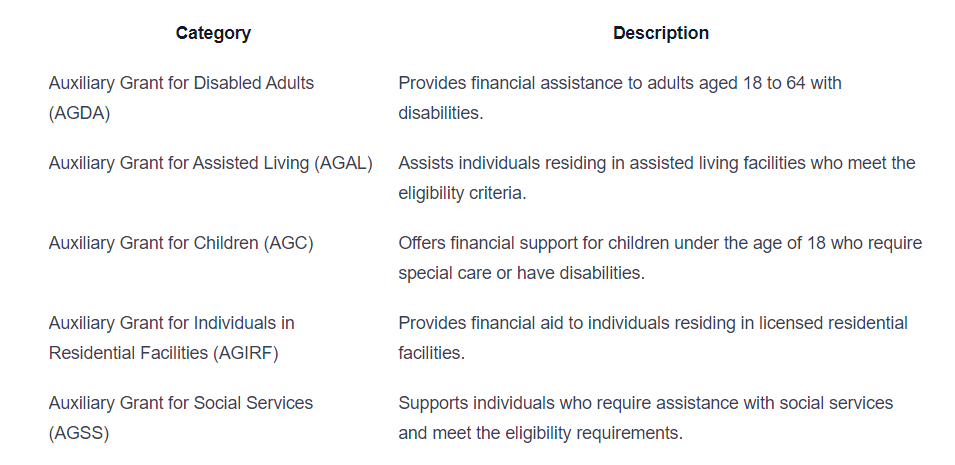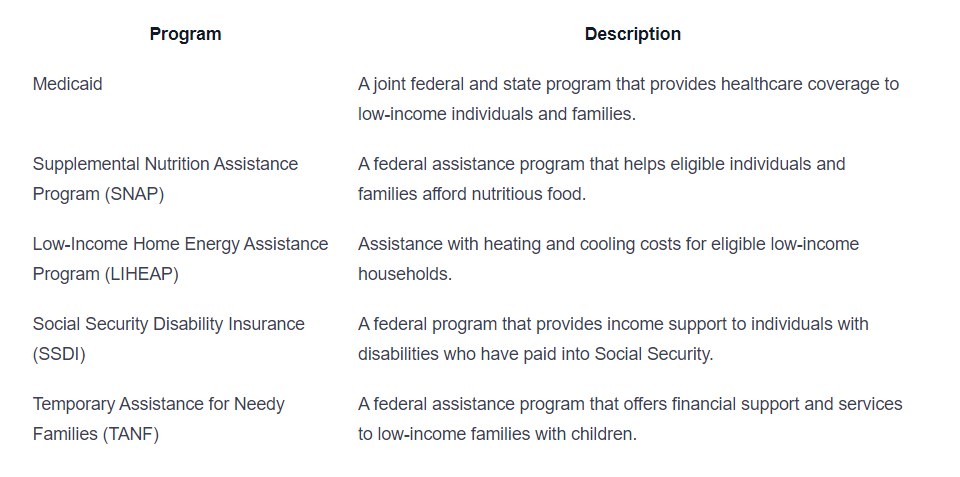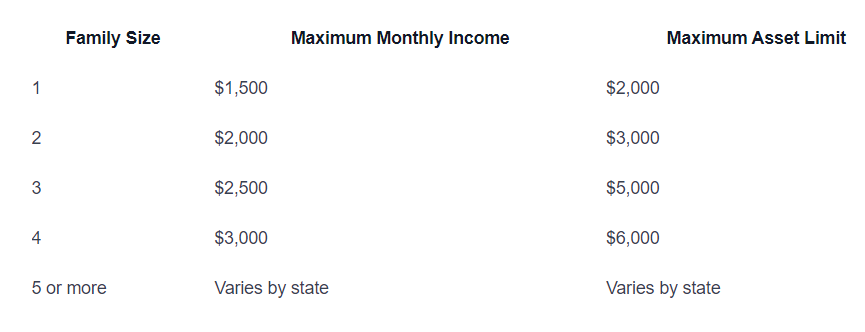Auxiliary Grants (AG)
September 16, 2025
Unlock financial support with Auxiliary Grants (AG). Discover eligibility criteria, application process, and helpful resources.

Understanding Auxiliary Grants (AG)
When it comes to providing assistance to individuals in need, Auxiliary Grants (AG) play a vital role in offering financial support and resources. Let's delve into what exactly Auxiliary Grants are and the purpose they serve, along with the eligibility criteria associated with them.
What are Auxiliary Grants?
Auxiliary Grants, commonly referred to as AG, are financial benefits provided by the government to eligible individuals or families. These grants are designed to provide supplemental income to help cover the costs of essential needs, such as housing, food, and healthcare.
Auxiliary Grants are typically administered at the state level, and the specific details and guidelines may vary from state to state. These grants are intended to assist those who may not qualify for other assistance programs but still require financial support to meet their basic needs.
Purpose and Eligibility Criteria
The primary purpose of Auxiliary Grants is to provide a safety net for individuals or families who are not eligible for other assistance programs but still require financial support. These grants aim to bridge the gap between income and necessary expenses, ensuring that vulnerable individuals have access to essential resources.
To be eligible for Auxiliary Grants, individuals must meet certain criteria set by the state. These criteria may include factors such as income level, assets, age, disability status, and family composition. It's important to note that these eligibility criteria may vary depending on the state in which the individual resides.
Determining eligibility for Auxiliary Grants usually involves an application process, where individuals must provide supporting documentation to verify their eligibility. The specific documentation required may vary, but commonly requested documents include proof of income, identification, and financial statements.
Understanding the basics of Auxiliary Grants and the purpose they serve is essential for individuals seeking financial assistance. By meeting the eligibility criteria and providing the necessary documentation, individuals can access the support they need to meet their basic needs and improve their overall well-being.
Types of Auxiliary Grants
When it comes to auxiliary grants (AG), there are different categories available to cater to various needs. Understanding these categories and the application process is essential for individuals seeking financial assistance. Let's explore the different types of auxiliary grants and the steps involved in the application process.
Different Categories of Auxiliary Grants
Auxiliary grants are designed to provide financial assistance to individuals who require additional support for various reasons. The specific categories of auxiliary grants can vary depending on the state or program involved. However, some common categories include:

It's important to note that the availability of these specific categories may vary depending on the state or program administering the auxiliary grants.
Application Process and Documentation
To apply for an auxiliary grant, individuals must follow the application process set forth by their respective state or program. The specific requirements and documentation may differ, but the general steps involved are as follows:
- Gather Required Documents: Collect the necessary documents, such as identification, proof of income, and medical records, to support your application.
- Complete the Application: Fill out the auxiliary grant application form accurately and provide all requested information.
- Submit the Application: Submit the completed application along with the required documents to the designated agency or office responsible for processing auxiliary grants.
- Application Review: The agency will review your application and documentation to determine eligibility for the specific category of auxiliary grant you are applying for.
- Decision and Notification: You will receive a decision regarding your application, typically in the form of a letter or notification. If approved, the letter will outline the benefits and coverage you qualify for under the auxiliary grant program.
It's important to note that the application process and required documentation may vary based on the state or program administering the auxiliary grants. It is advisable to check with the relevant agency or office for precise instructions and guidelines.
Understanding the different categories of auxiliary grants and the steps involved in the application process can help individuals navigate the financial assistance they may need. By providing the necessary documentation and following the guidelines set forth by the administering agency, individuals can increase their chances of securing the appropriate auxiliary grant to meet their specific needs.
Benefits and Coverage
When exploring auxiliary grants (AG), it's essential to understand the various benefits and coverage that these grants provide. These grants aim to offer financial assistance and support to eligible individuals who require additional aid for specific services. Let's delve into the services covered by auxiliary grants and the available financial assistance and support programs.
Services Covered by Auxiliary Grants
Auxiliary grants cover a range of services that are crucial for individuals who need extra support. The specific services covered may vary depending on the type of auxiliary grant and the individual's eligibility. Here are some common services covered by auxiliary grants:

It's important to note that the services covered by auxiliary grants may vary depending on the specific state or program. It's recommended to consult the relevant authorities or agencies to determine the exact services covered by auxiliary grants in your area.
Financial Assistance and Support Programs
In addition to the services covered, auxiliary grants may also provide financial assistance and access to various support programs. These programs are designed to offer additional aid and resources to eligible individuals. Some common financial assistance and support programs associated with auxiliary grants include:

It's important to research and understand the specific financial assistance and support programs available in your state or region, as eligibility criteria and benefits may vary.
By exploring the services covered by auxiliary grants and the available financial assistance and support programs, individuals can gain a better understanding of the resources and aid that may be accessible to them. It's recommended to consult the relevant agencies or authorities to obtain accurate and up-to-date information regarding the benefits and coverage provided by auxiliary grants in your area.
Qualification and Requirements
To be eligible for Auxiliary Grants (AG), individuals must meet certain qualification criteria and requirements. These include income and asset criteria, as well as residency and citizenship requirements.
Income and Asset Criteria
Auxiliary Grants take into account an individual's income and assets to determine eligibility. The specific income and asset limits may vary depending on the state or program administering the grants. It's important to note that these criteria are subject to change, and it's advisable to consult the relevant authorities or agencies for the most up-to-date information.
Here is an example of income and asset criteria for Auxiliary Grants:

Please note that these figures are for illustrative purposes only and may not represent the actual income and asset criteria in your specific area.
Residency and Citizenship Requirements
In addition to meeting the income and asset criteria, individuals applying for Auxiliary Grants must also satisfy residency and citizenship requirements. These requirements ensure that the grants are provided to those who are legally residing in the designated jurisdiction.
Residency requirements may vary depending on the state or program. Generally, applicants are required to provide proof of residency, such as a valid ID or utility bills.
Citizenship or immigration status requirements also vary and depend on the specific program. Some programs may require U.S. citizenship, while others may accept certain immigration statuses or visas.
It's important to carefully review the eligibility criteria and requirements outlined by the relevant authorities or agencies to determine if you qualify for Auxiliary Grants. If you have any questions or need further information, it is advisable to reach out to the appropriate support services or helplines for guidance.
By understanding the income and asset criteria as well as the residency and citizenship requirements, individuals can assess their eligibility for Auxiliary Grants and take the necessary steps to apply for financial assistance and support programs.
Application and Approval Process
When it comes to applying for Auxiliary Grants (AG), understanding the application and approval process is essential. This section outlines the steps involved in applying for AG and provides insight into the review and decision process.
How to Apply for Auxiliary Grants
Applying for Auxiliary Grants involves a series of steps to ensure that individuals meet the eligibility criteria and provide the necessary documentation. Here is a general overview of the application process:
- Research and Gather Information: Begin by researching the specific requirements and eligibility criteria for the Auxiliary Grants program in your state or region. This information can typically be found on the official government website or by contacting the relevant agency.
- Complete the Application Form: Obtain the AG application form from the appropriate agency. Fill out the form accurately and provide all requested information. Be sure to double-check for any additional documentation or supporting materials that may be required.
- Gather Supporting Documents: Collect all necessary supporting documents as outlined in the application form. This may include proof of income, residency, citizenship, and other relevant information. Make sure to provide the required documentation in the format specified by the agency.
- Submit the Application: Once the application form and supporting documents are complete, submit them to the designated agency. Follow the specified submission method, whether it be by mail, online submission, or in-person drop-off. Keep a copy of the application and supporting documents for your records.
- Follow-Up and Communication: After submitting the application, it is important to stay informed and be responsive to any communication from the agency. This may include requests for additional information or clarification. Promptly provide any requested documentation to avoid delays in the review process.
Review and Decision Process
Once the application has been submitted, it goes through a review and decision process. The specific steps and timelines may vary depending on the agency and region. Here is a general overview of what to expect:
- Application Review: The agency reviews the application to ensure that all required information and documentation have been provided. They assess eligibility based on factors such as income, assets, residency, and citizenship.
- Verification and Validation: The agency may conduct further verification and validation of the information provided in the application. This may involve contacting references, employers, financial institutions, or other relevant parties to confirm the accuracy of the details provided.
- Assessment of Eligibility: Based on the review and verification process, the agency determines whether the applicant meets the eligibility criteria for Auxiliary Grants. This assessment considers factors such as income and asset limits, residency requirements, and other applicable criteria.
- Notification of Decision: Once the assessment is complete, the agency notifies the applicant of the decision. This notification may be in the form of a letter or email. If approved, the notification will typically include details on the benefits and services covered by the Auxiliary Grants program.
It is important to note that the specific timelines and requirements may vary depending on the region and agency. It is advisable to reach out to the relevant agency for accurate and up-to-date information regarding the application and approval process for Auxiliary Grants.
By following the application process diligently and providing all required information and documentation, individuals can increase their chances of a smooth and timely approval process for Auxiliary Grants.
Additional Resources
When it comes to navigating auxiliary grants (AG), it's important to have access to reliable support services and resources. Here are some additional resources that can provide assistance and helpful information regarding AG.
Support Services and Helplines
Support services and helplines can be valuable sources of information and guidance for individuals seeking assistance with auxiliary grants. These services are designed to help answer questions, provide clarification, and offer support throughout the application and approval process.

These resources can provide detailed information about the eligibility requirements, application process, required documentation, and any specific guidelines associated with auxiliary grants. Whether you have general inquiries or need assistance with a specific aspect of the AG program, reaching out to these support services can help ensure that you have the necessary information to proceed.
FAQs and Helpful Tips
Frequently Asked Questions (FAQs) and helpful tips can provide insights and answers to common queries regarding auxiliary grants. These resources often cover a wide range of topics, addressing concerns that individuals may have during the application and approval process.
Here are some common questions that individuals may have about auxiliary grants:
- What is the purpose of auxiliary grants?
- Who is eligible to apply for auxiliary grants?
- How do I apply for an auxiliary grant?
- What documentation is required for the application process?
- What services are covered by auxiliary grants?
- Are there any income or asset limits for eligibility?
By referring to FAQs and helpful tips, individuals can gain a better understanding of auxiliary grants and have their questions answered promptly. These resources can also provide insights into important considerations, tips for a successful application, and any recent updates or changes to the AG program.
Remember, while these additional resources can be informative, it's always recommended to consult official sources and agencies for the most accurate and up-to-date information regarding auxiliary grants.
Sources
https://www.dars.virginia.gov/aps/AuxGrants
https://www.dss.virginia.gov/printer/family/as/auxgrant.cgi
https://www.portsmouthva.gov/403/Auxiliary-Grant-AG




















Frequently Asked Questions
In the same way living in a single-family home is different from apartment living, Heritage living differs from large, institutional assisted living facilities. PLUS, each Heritage site has a full-time, trained caregiver who lives on-site and ensures that all of residents’ needs are met continuously. Hourly caregivers support the work of the on-site caregiver.
Activities are an essential part of living a meaningful life. At Heritage, planned activities may include exercise, bingo, movies, and games. Field trips are also planned. Residents are encouraged to continue whatever activities they enjoy, like gardening, art, and reading. Residents are also encouraged to participate in off-site activities they arrange on their own.
Visitation is allowed and encouraged but in a safe and responsible way. All properties have outdoor living spaces available for safe, socially distant socializing. Visitors are screened before entry into any of our sites. Visitation policies are subject to change in accordance with current COVID-19 conditions in the community.
All Heritage residents pay privately. We accept most long-term care insurance.









